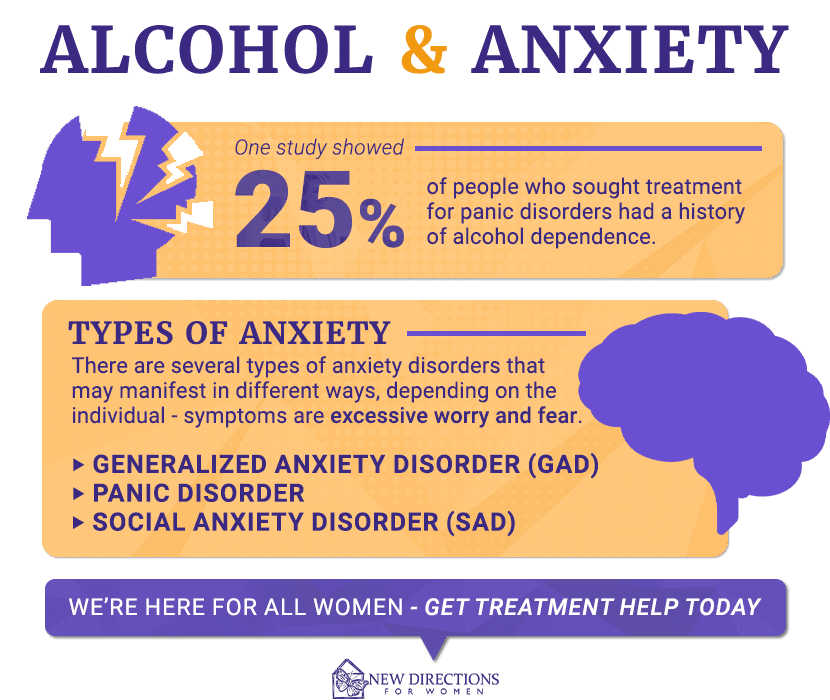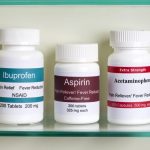If you’re someone who enjoys a drink every now and then, you may have wondered, “Can alcohol worsen anxiety?” It’s a valid question, and one that many people have pondered. After all, alcohol is often associated with relaxation and unwinding, but does it have any negative effects on anxiety? Let’s dive into this topic and explore whether alcohol and anxiety make a bad combination.
Living with anxiety can be challenging, and finding ways to cope and alleviate its symptoms is crucial. Many individuals turn to alcohol as a means of escape or temporary relief. However, it’s important to understand that alcohol may not be the best solution. While it may provide a temporary sense of relaxation, it can actually exacerbate anxiety in the long run. So, if you’re wondering whether reaching for that glass of wine or bottle of beer will help ease your anxiety, you might want to think twice. Let’s take a closer look at the relationship between alcohol and anxiety to gain a better understanding of how they interact.
Alcohol can indeed worsen anxiety. While it may initially provide temporary relief, alcohol is a depressant that can disrupt neurotransmitters and exacerbate anxiety symptoms in the long run. It can also interfere with sleep patterns, leading to increased anxiety and restlessness. It’s important to find healthier coping mechanisms for anxiety, such as exercise, mindfulness, and seeking professional help if needed.

Can Alcohol Worsen Anxiety?
Anxiety is a common mental health condition that affects millions of people worldwide. It is characterized by feelings of fear, worry, and unease. Many individuals turn to alcohol as a way to cope with their anxiety symptoms, but does alcohol actually worsen anxiety? In this article, we will explore the relationship between alcohol and anxiety and delve into the potential effects of alcohol on anxiety symptoms.
Alcohol and Anxiety: The Connection
Alcohol is a central nervous system depressant that can initially produce feelings of relaxation and euphoria. It can temporarily alleviate anxiety symptoms by slowing down brain activity and reducing inhibitions. However, this calming effect is short-lived and can be followed by a rebound effect, leading to increased anxiety levels.
The Effects of Alcohol on Anxiety Symptoms
While alcohol may provide temporary relief from anxiety, it can ultimately exacerbate symptoms in the long run. Here are some ways in which alcohol can worsen anxiety:
1. Disruption of Sleep: Alcohol can disrupt the quality of sleep, leading to increased fatigue and irritability the next day. This can contribute to heightened anxiety levels, as adequate sleep is crucial for mental well-being.
2. Increased Sensitivity: Individuals with anxiety disorders may be more sensitive to the effects of alcohol. Even small amounts of alcohol can trigger or intensify anxiety symptoms such as racing thoughts, increased heart rate, and feelings of unease.
3. Interference with Medications: Many individuals with anxiety disorders are prescribed medications to manage their symptoms. Alcohol can interfere with the effectiveness of these medications, making them less potent and potentially reducing their ability to alleviate anxiety.
4. Hangover Anxiety: The after-effects of alcohol consumption, commonly known as a hangover, can include symptoms such as headache, nausea, and increased anxiety. These physical discomforts can contribute to heightened feelings of anxiety and unease.
5. Increased Risk-Taking Behavior: Alcohol can impair judgment and decision-making, leading individuals to engage in risky behaviors that can further contribute to anxiety. This can include impulsive actions, poor choices, and increased vulnerability.
It is important to note that everyone’s response to alcohol is unique, and some individuals may experience different effects. However, for many individuals with anxiety, alcohol can worsen symptoms and should be approached with caution.
Managing Anxiety without Alcohol
If you experience anxiety and are looking for ways to manage it without turning to alcohol, here are some alternative strategies to consider:
1. Seek Professional Help: Consult with a mental health professional who can provide guidance and support in managing anxiety. They can help develop coping mechanisms, provide therapy, or recommend appropriate medications if necessary.
2. Practice Relaxation Techniques: Engage in relaxation techniques such as deep breathing exercises, meditation, or yoga. These practices can help calm the mind and reduce anxiety symptoms naturally.
3. Engage in Regular Physical Activity: Regular exercise has been shown to have a positive impact on mental health. Engaging in physical activity can release endorphins, which are known as “feel-good” hormones, and help reduce anxiety levels.
4. Maintain a Healthy Lifestyle: Aim for a balanced diet, adequate sleep, and a regular routine. These factors can contribute to overall well-being and help reduce anxiety levels.
5. Seek Support: Reach out to friends, family, or support groups who can provide a listening ear and understanding. Sharing your feelings and experiences with others can help alleviate anxiety and provide a sense of belonging.
In conclusion, while alcohol may provide temporary relief from anxiety symptoms, it can ultimately worsen anxiety in the long run. The disruptive effects on sleep, increased sensitivity, interference with medications, hangover anxiety, and increased risk-taking behavior can all contribute to heightened anxiety levels. It is important to explore alternative strategies for managing anxiety and seek professional help if needed. Remember, you are not alone, and there are resources available to support you on your journey towards better mental health.
Key Takeaways:
- Drinking alcohol can make anxiety symptoms worse.
- Alcohol is a depressant and can increase feelings of sadness or worry.
- Alcohol affects the brain and can disrupt the balance of chemicals that regulate mood.
- Alcohol can interfere with sleep, leading to increased anxiety the next day.
- Reducing or avoiding alcohol consumption can help manage anxiety symptoms.
Frequently Asked Questions
Does alcohol worsen anxiety?
Alcohol is often used as a way to relax and unwind, but it can actually worsen anxiety symptoms in the long run. While alcohol may initially provide a temporary sense of relief, it is a depressant that can disrupt the balance of chemicals in the brain, leading to increased feelings of anxiety and even panic attacks.
Additionally, alcohol can interfere with the quality of sleep, which is crucial for managing anxiety. Poor sleep can exacerbate anxiety symptoms and make it more difficult to cope with stress. It’s important to remember that alcohol is not a solution for anxiety and can ultimately make the condition worse.
How does alcohol affect anxiety?
Alcohol affects anxiety by altering the levels of neurotransmitters in the brain. Initially, it may create a feeling of relaxation and euphoria, but as the alcohol wears off, the brain compensates by increasing the production of excitatory neurotransmitters, such as glutamate. This can lead to increased anxiety and even withdrawal symptoms.
Alcohol also disrupts the natural sleep cycle, causing fragmented and poor-quality sleep. This can contribute to heightened anxiety levels, as sleep deprivation is known to worsen anxiety symptoms. Furthermore, alcohol can impair cognitive function, making it more challenging to cope with stress and manage anxiety effectively.
Can drinking alcohol make anxiety worse?
Yes, drinking alcohol can make anxiety worse in the long term. While it may provide temporary relief, the depressant effects of alcohol can disrupt the brain’s chemical balance and lead to increased anxiety symptoms. Additionally, alcohol can interfere with sleep quality, exacerbating anxiety and making it harder to manage stress.
It’s important to note that self-medicating with alcohol is not a healthy or effective way to manage anxiety. Seeking professional help from a mental health expert and exploring alternative coping mechanisms, such as therapy, exercise, and relaxation techniques, is a more sustainable approach to managing anxiety.
Are there any benefits of alcohol for anxiety?
While some individuals may experience temporary relief from anxiety symptoms after consuming alcohol, it is not a recommended or healthy long-term solution. The perceived benefits of alcohol for anxiety are often short-lived and can be overshadowed by the negative effects it has on mental health and overall well-being.
Seeking healthier alternatives, such as engaging in regular exercise, practicing mindfulness techniques, and seeking professional help, can provide more sustainable and effective methods of managing anxiety in the long run.
How can I manage anxiety without alcohol?
Managing anxiety without alcohol is possible and often more effective in the long run. Here are some strategies you can try:
1. Seek professional help: Consult a mental health expert who can provide guidance and support tailored to your specific needs.
2. Practice relaxation techniques: Techniques such as deep breathing, meditation, and progressive muscle relaxation can help reduce anxiety levels.
3. Engage in regular exercise: Physical activity releases endorphins, which can improve mood and reduce anxiety.
4. Prioritize sleep: Establish a consistent sleep routine and create a relaxing sleep environment to improve sleep quality.
5. Connect with others: Building a support network of friends and loved ones can provide emotional support and help alleviate anxiety.
Remember, managing anxiety is a journey, and it’s important to find what works best for you. Seeking professional guidance and adopting healthy coping mechanisms can lead to long-lasting anxiety relief.
The ‘vicious cycle’ of alcohol and anxiety | The Anxiety Project | ABC News
Final Thought: Can Alcohol Worsen Anxiety?
As we’ve explored in this article, the relationship between alcohol and anxiety is complex. While some people may turn to alcohol as a temporary escape from their anxious thoughts and feelings, it’s important to understand that alcohol can actually worsen anxiety in the long run. While it may provide temporary relief, alcohol is a depressant that can disrupt the delicate balance of brain chemicals responsible for regulating our mood and emotions.
Moreover, alcohol can interfere with the quality of sleep, increase heart rate, and trigger physical symptoms that mimic anxiety. It can also impair judgment and decision-making, leading to heightened feelings of anxiety and worry. It’s important to remember that alcohol is not a solution for managing anxiety, but rather a temporary band-aid that can exacerbate the underlying issues.
Instead, individuals struggling with anxiety should consider healthier coping mechanisms such as exercise, mindfulness techniques, therapy, or seeking support from loved ones. By addressing the root causes of anxiety and adopting healthier habits, individuals can find long-term relief and improve their overall well-being. So, if you’re experiencing anxiety, it’s best to steer clear of alcohol and focus on finding healthier ways to manage your emotions.


